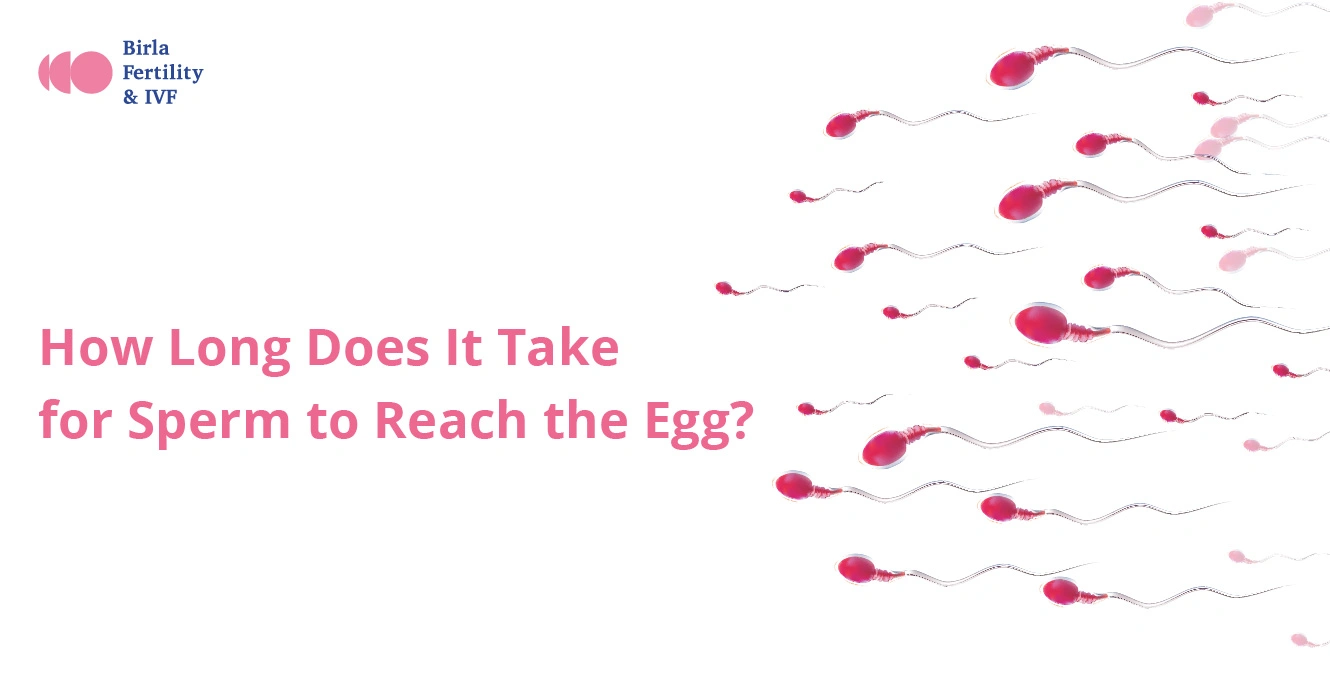
What is Secondary Infertility? Can it be Cured?

Table of Contents
- What You Must Know About Secondary Infertility
- What is Secondary Infertility?
- Types of Secondary Infertility
- What are the Causes of Secondary Infertility in Women?
- What are the Causes of Secondary Infertility in Men?
- Signs of Secondary Infertility
- Diagnosis of Secondary Infertility
- What is the Secondary Infertility Treatment?
- Can a woman get pregnant if you have secondary infertility?
- How to Cope with Emotional Stress During Secondary Infertility?
- Conclusion
What You Must Know About Secondary Infertility
Secondary infertility often goes unspoken, yet it affects many families. Parents, at times, feel hesitant to share their struggles. They start believing that their desire for another child might be misunderstood. But the truth is, wanting to grow your family after one successful pregnancy is natural. There are many couples who face unexpected issues during their subsequent pregnancy, which is termed secondary infertility.
Couples going through secondary infertility face severe emotional stress due to multiple factors. They often end up with stress that might spill over to their firstborn child, affecting their growth years. In this blog, we will understand what secondary infertility is. Furthermore, we will discuss the causes of secondary infertility and treatment options available.
What is Secondary Infertility?
Primary infertility is the inability to give birth to a baby after 12 months of frequent unprotected sexual intercourse. However, secondary infertility is when a woman who was able to conceive previously is having trouble getting pregnant again. Similar to primary infertility, secondary infertility is not a woman-only problem. Both male and female partners need to undergo tests to identify the problem leading to this kind of infertility.
If you have been diagnosed with secondary infertility, your treatment methods will be similar to those of a patient having primary infertility. A major difference between primary and secondary infertility is that, for parents, secondary infertility can come as a surprise. You might not seek medical help or treatment, and keep trying because you were able to get pregnant successfully before.
Types of Secondary Infertility
Secondary infertility can be classified into the following three types:
- Female-related secondary infertility: This generally happens when a woman’s conception is impacted by changes in her reproductive health. Ovulation issues, fallopian tube blockages, uterine illnesses such as fibroids or scar tissue, hormone imbalances, or age-related declines in egg quality are common causes.
- Male-related secondary infertility: Reduced sperm count, motility, or abnormal sperm structure can all contribute to a reduction in male fertility. Common causes include changes in lifestyle, infections, hormone imbalances, or varicocele, or enlarged scrotal veins.
- Combined or unexplained secondary infertility: There are some cases in which both partners may have contributing factors. In some situations, no clear cause can be identified despite thorough testing. This is called unexplained infertility and often requires advanced fertility treatments.
Recognising the type helps doctors personalise treatment and improve success rates.
What are the Causes of Secondary Infertility in Women?
With age, the body and the reproductive system can undergo significant changes due to stress, complications from previous pregnancy, weight gain, and other reasons. Restating a fact, the problem is not necessarily with the female but can be due to the male as well.
Some of the common secondary infertility causes have been listed below. You may have one or more of these issues, which can be diagnosed correctly by seeking quality medical care.
- Lifestyle Factors: The most common causes for secondary infertility are due to lifestyle changes. You might have started smoking, drinking alcohol excessively, following a poor diet, or having a lack of proper exercise. Most women do not realise that these habits contribute to their infertility after having gone through a successful pregnancy.
- Age: Fertility for women starts to decline with age. Though successful pregnancies can happen, they are more difficult or may take more time and effort.
- Diminished Ovarian Reserve: Females are born with a limited ovarian reserve, which is the number of egg cells that can be produced to help with fertilisation and successful pregnancy. As women age, their chances of conceiving also decline. They have a lower chance of conceiving due to the natural physiology of the body.
- Hormonal Imbalance: A changing lifestyle or a lack of exercise can cause thyroid disorders, which lead to a hormonal imbalance in the body. Such an imbalance affects the body’s natural balance and causes infertility issues.
- Polycystic Ovarian Syndrome (PCOS):PCOS makes the body produce too many hormones, which prevents the ovaries from releasing eggs. PCOS may also form cysts inside the ovaries, affecting their natural function and hampering fertility.
- Endometriosis: Nearly 25 million Indian women suffer from endometriosis. A tissue that lines the uterus grows outside it on the ovary and affects the normal fertilisation process.
- Uterine Fibroids: Fibroids are non-cancerous tumours that develop inside the uterus. They may vary in size and shape, ranging from a tiny cyst to the size of a small ball. These tumours block the sperm from fertilising the egg, minimising the chances of a pregnancy.
- Blocked Fallopian Tubes: Fallopian tubes are the passage for eggs to move from the ovaries to the uterus for fertilisation or implantation of the embryo. If the passage is blocked, the sperm and egg will not be able to fuse, thus causing issues with pregnancy.
- Isthmocele: If you are a woman who has had a Cesarean section in a prior pregnancy, you might have scars from the operation. These scars can cause adjoining disorders like endometriosis and lessen the chances of conceiving.
What are the Causes of Secondary Infertility in Men?
- Lifestyle Factors: One of the most common reasons for secondary infertility in men is lifestyle changes. Habits like smoking, excessive alcohol consumption, poor diet, or lack of regular exercise can affect sperm health and overall fertility. Many men don’t realise that these changes, even after fathering a child successfully in the past, can play a significant role in making conception difficult the next time.
- Low Sperm Count: Sperm count tends to decline with age in men. If you have been trying to father a baby at the age of 40 or above, sperm count might be the issue, and this can be solved by opting for other Assisted Reproductive Technologies (ART).
- Problems with Libido/Ejaculatory Issues: Surgery in the groin area, overexposure to environmental factors like heat and air pollution, can cause infertility issues. If you have had surgery, this might be the reason for infertility.
- Sexually Transmitted Infections: Just like women, there can be infections due to unprotected sexual activity, which can cause issues with fertility.
- Unexplained Infertility: Medical science is advancing rapidly, but there are certain disorders for which the cause or cure has not yet been identified. Any couple could be affected by unexplained infertility for which the exact cause is not known. Then again, medical research could soon find a solution for your disorder, so it would be best to consult and stay in touch with trusted doctors.
Signs of Secondary Infertility
Secondary infertility can be emotionally challenging because couples often expect conception to be as natural as before. Some common signs include:
- Inability to Conceive Again: Trying for over 6–12 months without success despite regular unprotected intercourse.
- Irregular Periods (for women): Missed or unpredictable cycles may signal ovulation problems.
- Painful Periods or Intercourse: Could indicate conditions like endometriosis or pelvic issues.
- Recurrent Miscarriages: Difficulty in carrying a pregnancy to term may also suggest underlying issues.
If these signs appear, seeking medical guidance early can make a difference.
Diagnosis of Secondary Infertility
Diagnosing secondary infertility requires a careful and step-by-step approach, since couples may already have experienced one or more successful pregnancies. Doctors try to identify what has changed since the previous conception and address it with compassion.
- Detailed Medical History: A review of past pregnancies, delivery complications, medical issues, medications, and lifestyle changes is done. This helps doctors connect the dots and identify possible reasons for difficulty in conceiving now.
- Physical Examination: A general and reproductive health check-up for both partners is conducted. This ensures that no structural or underlying health condition is being missed.
- Ovulation Assessment (for women): Blood tests, ovulation tracking, and ultrasound scans confirm if eggs are being released regularly. Irregular ovulation is a common but treatable cause of infertility.
- Semen Analysis (for men): Evaluates sperm count, movement, and structure. It’s one of the simplest tests yet provides vital information.
- Imaging Tests: HSG, hysteroscopy, or laparoscopy help examine the uterus and fallopian tubes. These tests detect blockages or scar tissue that could prevent conception.
- Hormonal & Blood Tests: Check thyroid, prolactin, AMH, and other hormones. These results show whether hormonal imbalances are affecting fertility.
- Genetic Testing (if necessary): Recommended for unexplained or recurrent infertility. This helps uncover inherited factors that might impact pregnancy chances.
- Couple-Centric Approach: Both partners are evaluated together. Because infertility is never just one person’s struggle—it’s a shared journey.
What is the Secondary Infertility Treatment?
If you have successfully conceived previously, being in such a situation where you have fertility problems might feel uncomfortable. But identifying the cause and availing treatment is important to conceive again. Infertility treatment specialists will try to understand your medical history and suggest appropriate tests and treatments.
Generally, the female partner undergoes blood tests, an examination of the uterus, X-rays and Ultrasound scans to identify any issues. Simultaneously, the male partner is tested for reproductive and overall health.
If you are a male, you will undergo a blood test, a general investigation of your medical history, followed by a semen analysis. Once the issues have been identified, there are many options for secondary infertility treatment as listed below:
- Medications to correct hormonal imbalances
- Surgery for – Endometriosis
- Blocked Fallopian Tubes
- Hysteroscopy for Diagnosis of the Uterus
If the above interventions do not help your cause, advanced assisted reproductive techniques can be used. A wide range of options is available, including IUI, ICSI, TESE, MESA or In-Vitro Fertilisation (IVF).
Can a woman get pregnant if you have secondary infertility?
Yes, like we mentioned in the above section, there are advanced assisted reproductive techniques that can help women get pregnant even if she is experiencing secondary infertility. Secondary infertility does not mean the end of fertility, but rather that conception may take longer or require medical support. Many women facing this challenge are able to conceive with the right guidance, depending on the underlying cause.
Treatments such as lifestyle changes, fertility medications, surgical correction of reproductive issues, or advanced options like IUI and IVF can significantly improve the chances of pregnancy. With timely diagnosis and proper care, secondary infertility can often be overcome, giving hope to couples planning another child.
How to Cope with Emotional Stress During Secondary Infertility?
Infertility can be tough to handle. If you have secondary infertility, it will be a surprising and uncomfortable experience. A major difference from primary infertility for most couples who have had a successful pregnancy would be the presence of the first child.
- Do not blame yourself or your partner.
- Gather more information on your condition and the available treatment methods.
- Reach out to people who have gone through the same problem and find out how they tackled the situation.
Conclusion
Secondary infertility can be an overwhelming experience. It can be tough to come to terms with it. However, you should not lose hope and stay positive because a variety of secondary infertility treatments are available. Most of the problems related to infertility can be identified and diagnosed by an experienced infertility treatment specialist.
Reach out to your doctor and understand your condition better. This will help you in deciding how to move forward with a sense of direction. With a few right steps, you could be on your way to having another child very soon.
Our Fertility Specialists
Related Blogs
To know more
Birla Fertility & IVF aims at transforming the future of fertility globally, through outstanding clinical outcomes, research, innovation and compassionate care.
Had an IVF Failure?
Talk to our fertility experts

 Our Centers
Our Centers




















